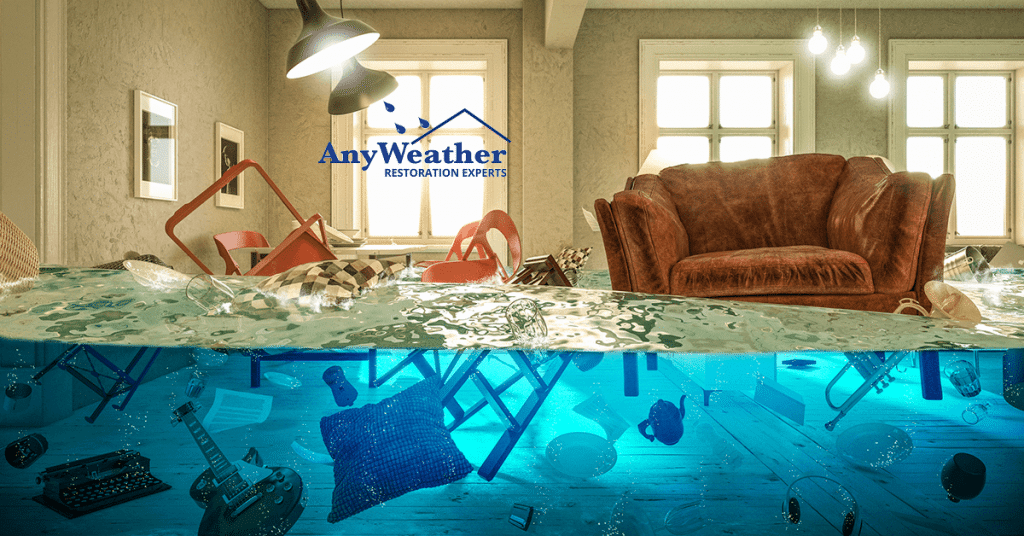
Water damage can be caused by a variety of reasons including a leak in your roof, a leaking or burst plumbing pipe, or a backed up drain. What do you do in the event you unexpectedly encounter such a situation? One of the first steps, along with notifying your insurance agent, is to call a local water damage restoration company. They will be able to help you assess your damage, determine the best course of action, and eventually fix any damage that occurred.
AnyWeather Restoration is a local water damage restoration contractor in Cincinnati and Northern Kentucky. Their Institute of Inspection Cleaning and Restoration Certification (IICRC) technicians are trained to mitigate your water damage quickly and efficiently.
AnyWeather Restoration is on standby 24/7/365 to provide emergency damage restoration service when you need it. AnyWeather Restoration has a one hour response time, but what you do until they arrive can have a big effect on your home, family, and ultimately your bill. Follow this guide to minimize further damage and protect the safety of your family.
Water Damage Safety
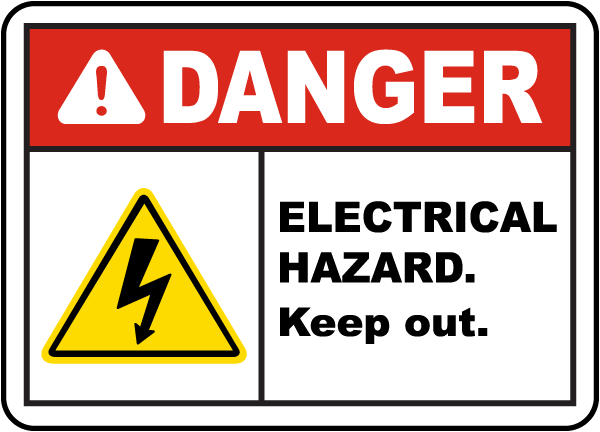
Safety is the primary concern when a water emergency happens. Before anything else, you must determine if it is safe to remain in the house. If you deem it safe, your next step is to turn off the source of water. If this is not possible, set up buckets to collect any dripping or spewing water. Turning off the circuit breakers in your home is a must. This will help to remove some of the danger and help to prevent further damage.
Document The Water Damage…Take Photographs

It is a good practice to snap some photos to document any damage. No, this isn’t to boost your Instagram following. This documentation is for your water restoration company and insurance agency. A good restoration company will take their own photos but it is best if you have some as well. Photos are important for your insurance adjustor to determine the extent of the damage and file your claim accordingly.
Dealing With Damage From Contaminated Water?…Wait For The Pros
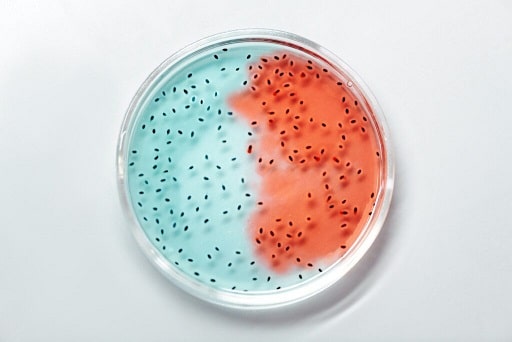
Bacteria, viruses, and parasites are a major concern with contaminated flood water. If you have damage from contaminated water, do not attempt to clean up the mess on your own. Wash your hands thoroughly and change your clothes after coming into contact with dirty water. Be sure to keep any pets away from the water. An experienced water damage restoration company can safely and efficiently clean and sanitize your home after they have removed the water.
Clean Water Damage Clean Up…Start Right Away
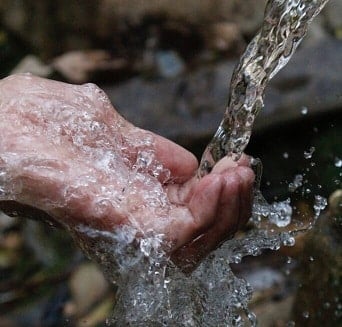
If you are dealing with clean water you can start cleaning up until help arrives. Begin by extracting the water. Using mops or towels, remove as much water as you can from the affected area. Only use a wet/dry vacuum if you are certain there is no electrical danger. A standard household vacuum is not safe to use for water cleanup. Their designs can cause water to come into contact with electronics creating a safety hazard and a ruined vacuum. Fans and air conditioning can be turned on to help to dry up excess moisture. Do not use a ceiling fan unless you are certain there is no damage to the ceiling.
Preparing The Damaged Room Or Area For Restoration
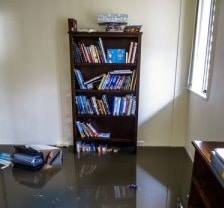
Once you get rid of as much of the excess water as you can, begin to remove small items that can be or have been damaged. This includes papers, books, photos and wall hangings. Items that are on the floor can be removed and hung up to dry until help arrives. Long curtains should be removed or hung in a way that they do not touch the floor. If you are able to remove furniture, you can do so now. Items that cannot be removed can be placed on wood blocks or on top of aluminum foil to prevent further water damage. Smaller items that have come into contact with contaminated water may not be worth saving. Larger items may be able to be salvaged with help from your water damage restoration company.
Flood Water Precautions
Safety should be your top priority. Do not do anything that seems unsafe or you are not comfortable with. It is best to err on the side of caution in a water emergency.
Quick Tips…
- Do not enter a space where an electric hazard is possible. Water and electricity can be a deadly combination. Circuits should be turned off if there is standing water or water damage in your walls and ceilings.
- Do document your damage by taking photos. Do not throw anything away or begin the clean up process until documenting your damage. This is vital to ensure that insurance claims are are properly created and paid out.
- Do not clean up contaminated water on your own. Your water damage restoration company is trained to safely clean up after a flood of contaminated water.
- Do not use a household vacuum as it is not safe or designed to use for cleaning up water.
- Do not use appliances that are in wet areas. This should be avoided due to the risk of electric shock.
- Do not leave any items in the damaged area that can cause staining.
- Do not remove any carpet. This can result in irreversible damage that could have been fixed.
- Do not wait to ask for professional help. Prompt and proper mitigation is essential for the safety of your home and family.

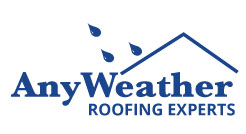
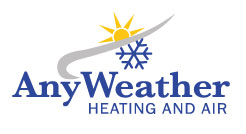
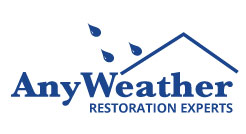
Thank you for this informative article. I didn’t know there were so many ways one can minimize the water damage. I suffer from water damage all the time now I know some reasons.